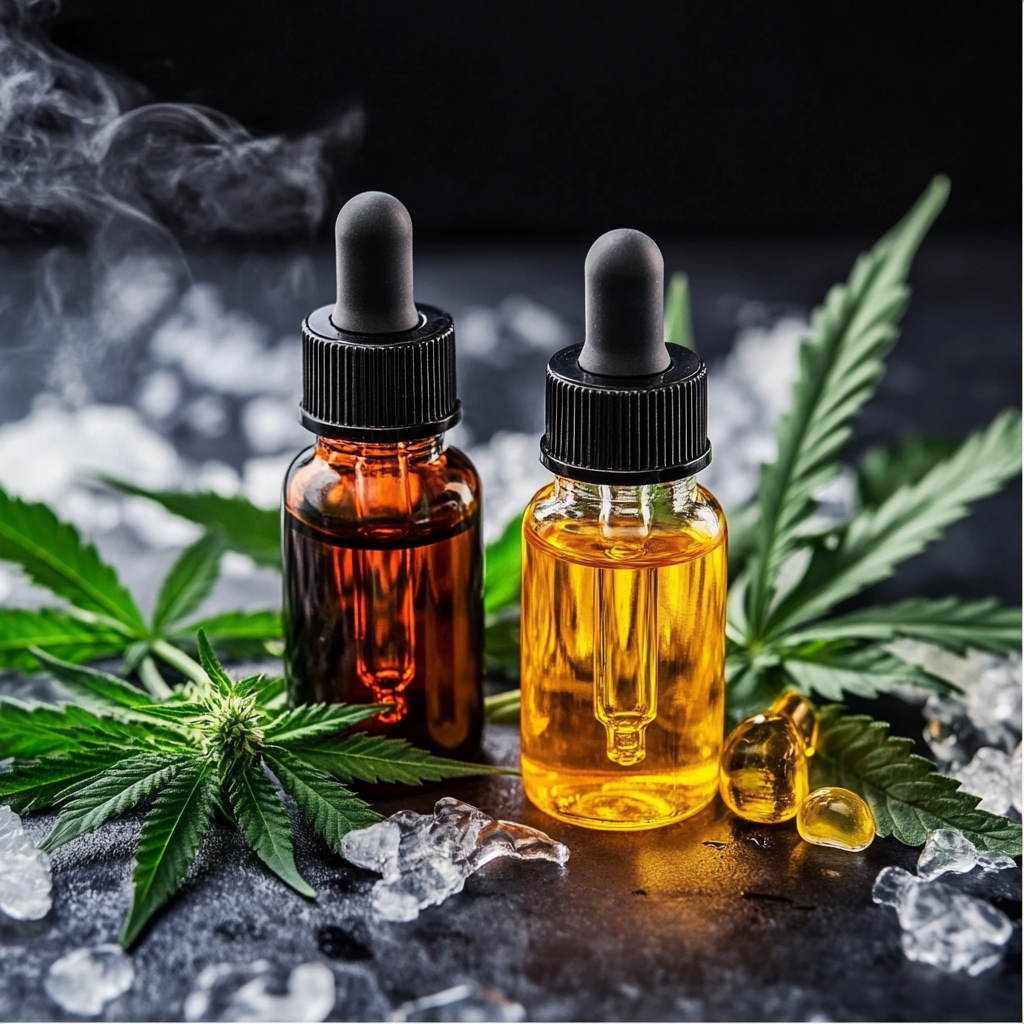In recent years, the popularity of natural remedies has surged, with CBD oil and hemp oil leading the charge. Despite their common origin from the cannabis plant, these oils serve different purposes and offer distinct benefits. Understanding their differences can help consumers make informed choices.
Understanding the Origins
Both CBD oil and hemp oil are derived from the cannabis plant, but they come from different parts and have unique extraction processes.
CBD Oil
CBD oil is extracted from the flowers, leaves, and stalks of the hemp plant. It is rich in cannabidiol (CBD), a compound known for its potential therapeutic effects. The extraction process often involves CO2 or ethanol to isolate the CBD compound.
Hemp Oil
Hemp oil, often referred to as hemp seed oil, is obtained by cold-pressing hemp seeds. Unlike CBD oil, it contains little to no CBD. Instead, it is rich in nutrients like omega-3 and omega-6 fatty acids, making it a popular ingredient in skincare products and cooking.
Key Differences in Composition
The primary distinction between these oils lies in their chemical composition and the benefits they offer.
CBD Oil Composition
- High concentration of CBD
- Contains other cannabinoids and terpenes
- May include trace amounts of THC (less than 0.3%)
CBD oil is often used for its potential to alleviate anxiety, pain, and inflammation. Some studies suggest it may help with conditions like epilepsy and insomnia.
Hemp Oil Composition
- Rich in omega-3 and omega-6 fatty acids
- Contains vitamins E and B
- Free from cannabinoids like CBD and THC
Hemp oil is celebrated for its nutritional benefits and is commonly used in dietary supplements and skincare products. Its fatty acid profile supports heart health and skin hydration.
Applications and Uses
The uses of CBD oil and hemp oil vary significantly due to their different properties.
CBD Oil Uses
CBD oil is primarily used for therapeutic purposes. Some common applications include:
- Managing anxiety and stress
- Relieving chronic pain and inflammation
- Supporting sleep quality
- Assisting with neurological disorders
Research continues to explore the full range of CBD’s potential health benefits, with promising results in various medical fields.
Hemp Oil Uses
Hemp oil’s applications are more diverse, spanning culinary, cosmetic, and industrial uses:
- Cooking oil and salad dressings
- Moisturizers and skincare products
- Base for eco-friendly paints and plastics
- Dietary supplements for nutritional support
Its versatility makes hemp oil a staple in many households, particularly for those seeking natural and sustainable products.
Legal Considerations
The legal status of CBD oil and hemp oil can vary depending on location and regulatory frameworks.
CBD Oil Legality
CBD oil’s legality often hinges on its THC content. In many regions, CBD products must contain less than 0.3% THC to be considered legal. Some countries have stricter regulations, requiring zero THC content.
Hemp Oil Legality
Hemp oil is generally legal worldwide, as it contains no psychoactive compounds. Its widespread acceptance is due to its nutritional value and lack of cannabinoids.
Consumer Considerations
When choosing between CBD oil and hemp oil, consumers should consider their specific needs and preferences.
Choosing CBD Oil
Individuals seeking therapeutic benefits may opt for CBD oil. It’s advisable to look for products with third-party lab testing to ensure quality and potency.
Choosing Hemp Oil
For those interested in nutritional benefits or skincare, hemp oil is an excellent choice. Its rich nutrient profile supports overall health and wellness.
Conclusion
While CBD oil and hemp oil originate from the same plant, their differences in composition, uses, and legal status set them apart. CBD oil is favored for its potential therapeutic effects, while hemp oil is valued for its nutritional and cosmetic applications. Understanding these distinctions empowers consumers to make informed decisions based on their individual needs.
